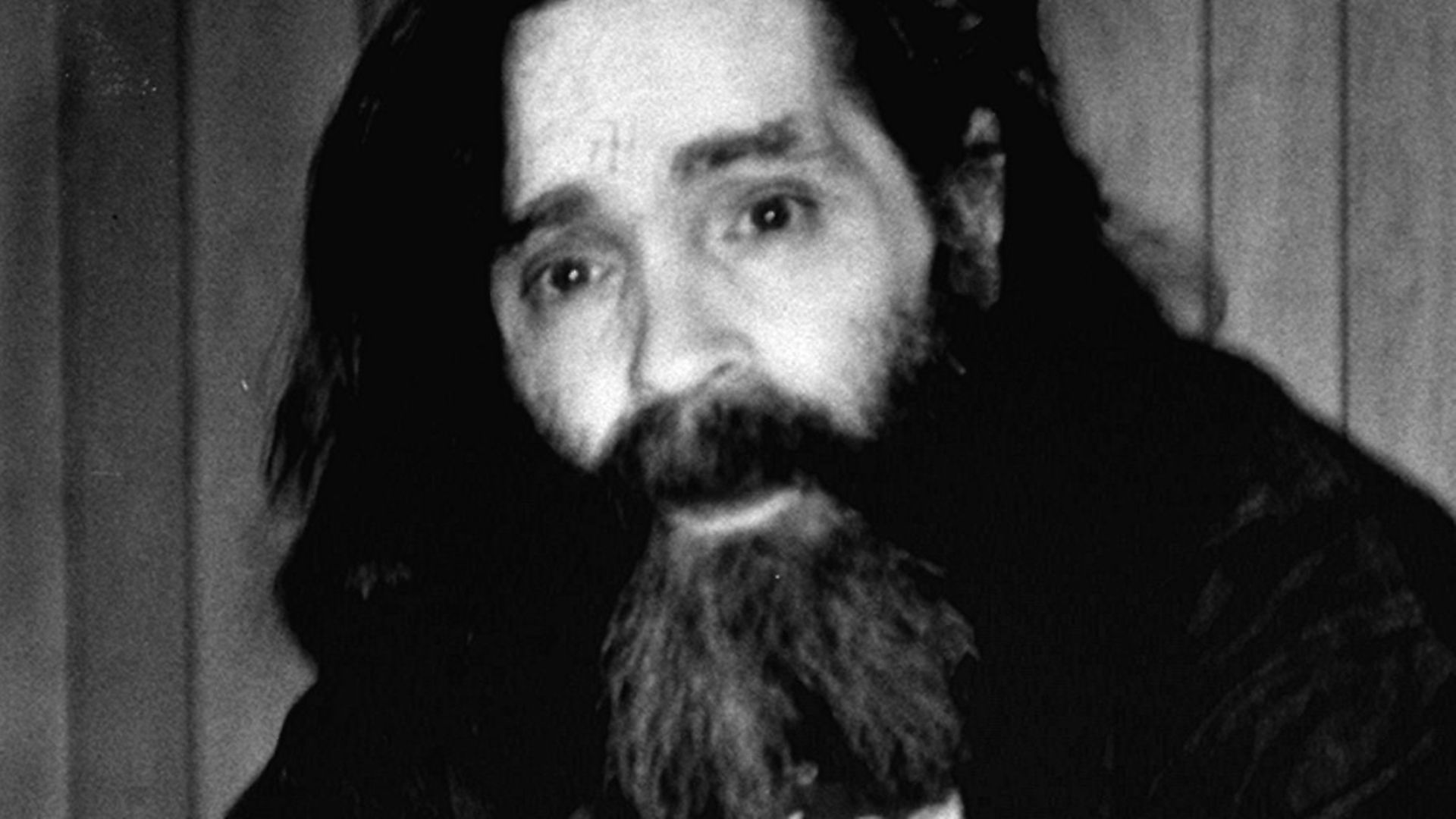
How did the cult guru convince his followers to kill for him? LINDA DUBROW-MARSHALL and ROD DUBROW-MARSHALL explain
Charles Manson, who died this week, was a cult leader par excellence. Back in his heyday, he recruited a devoted set of followers to his ‘family’, some of whom went on to murder people for him. But what did people see in Manson and how did he manage to manipulate and control them so successfully and with such terrible consequences?
It is said that ‘love is in the eye of the beholder’ and there’s no better example of this than the love and devotion that intelligent, well-educated people have for cult leaders who portray themselves as the next messiah but who look to the rest of the world like deceitful and abusive sociopaths.
Of course, people do not see an advert for an ‘abusive and murderous cult’ or ‘how to end your life in trafficked drudgery’, but instead are told about an inspired and charismatic leader whose vision and purpose can transform their lives for the better and the whole of humanity with it.
So people go along to meet this extraordinary person full of hope and optimism – after all their friend or the persuasive person who told them all those great things about the guy can’t be totally wrong, surely?
This is what psychologists call optimism bias, which indicates that we are wired to ‘look on the bright side’. In the case of people recruited into cults, they are influenced by what they have been promised and what they then hope and expect to find. So Manson may have looked sinister to you or I – but we were not expecting a visionary messiah with a promised, powerful message and followers who look just like us.
For those who were and choose to believe in this wonderful, life-affirming opportunity, the search for salvation in bondage to the cult leader had begun.
The key to Manson’s control, as with all cult leaders, was to ensure that followers not only saw him as an all-powerful, messiah-like figure, but that they saw themselves as members of a superior elite with the answer to the world’s problems – even if that means killing the rest of the world along the way.
Manson persuaded his followers to commit murders to trigger ‘Helter Skelter’ where there would be a ‘race war’ which would elevate him to world leadership. He espoused a rambling, incoherent apocalyptic world view that was nevertheless completely captivating for his followers.
Over time the Manson-type cult leader becomes a dominant part of the follower’s identity and their self-esteem. The whole reason for their existence and survival is completely tied up with the leader and the cult. Manson became the core and central part of his followers’ lives – he provided a ‘family’ and fulfilled their basic needs. His ‘family members’ acted to further that critical part of themselves that was bound up with him – and with terrible results.
Normal critical thinking and morals go out of the window. This explains why cult followers themselves can do terrible things or witness barbaric acts and do nothing to stop them. If you act against Manson you are acting against yourself and all that you’ve invested in him. After all there’s no going back, is there? This means there is no limit in practice – even if that means murder as in the case of some of the Manson cult members.
These terrible crimes were the ultimate act of loyalty and reinforcement of the cult identity for the followers – like suicide bombers this probably felt like the best thing they could have possibly done at the time.
But the Manson followers were living in an altered state of consciousness and existence – aided also by drugs – and where the normal rules of society just didn’t apply in the cosy ‘family’ that had been constructed.
Many Manson followers went to prison for their crimes, and some later felt tremendous guilt about their actions. But what is really frightening is how it is all too easy to be duped and sucked into believing that your life is dependent on an amazing leader with such wonderful insights who in reality is a murderous psychopath.
Followers forget who they really are, their other interests, family and friends and do terrible things for the cause and leader they love.
The lessons from the Manson ‘family’ are a warning to us all: question everything, think critically and don’t believe that any single person has all the answers.
Be wary of charisma and charm and people who are devoted to a messiah-like leader because while it is great to believe in big beautiful ideas it can also be the road to cult slavery and servitude.
Manson’s lasting legacy is hopefully that people will increasingly see through such cult leaders quicker and avoid them more easily than the followers who devoted their lives and murdered others to prove themselves as true devotees.
Linda Dubrow-Marshall is a lecturer in applied psychology at the University of Salford; Rod Dubrow-Marshall is professor of social psychology and visiting fellow at the Criminal Justice Hub, University of Salford; this article also appears at www.theconversation.com









